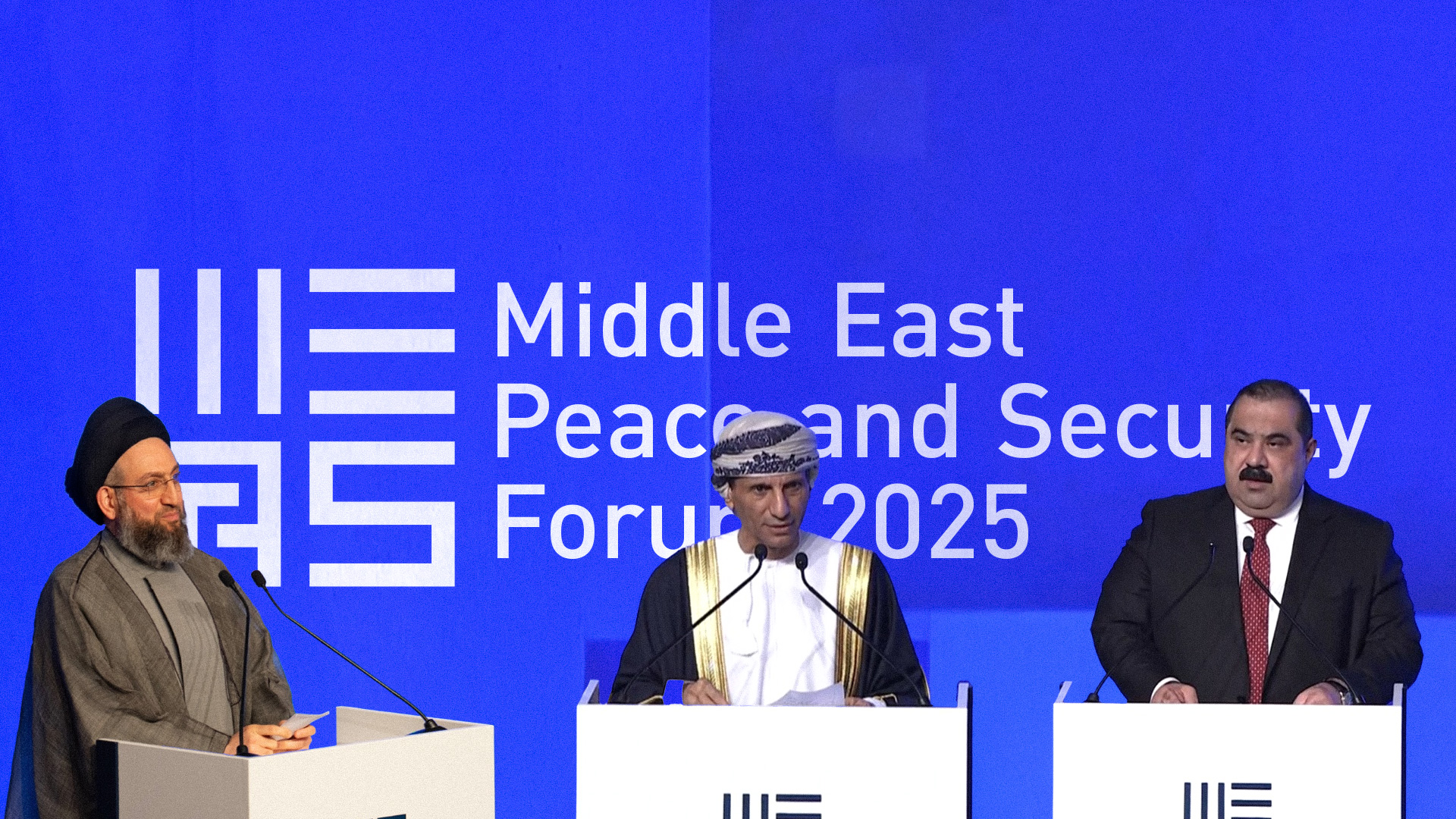Iraqi Leaders at MEPS Forum Call for Unity, Reform, and an End to Foreign Interference
At MEPS 2025, Iraqi leaders al-Samarrai, al-Hakim, and the UN envoy called for a new government to protect Iraq from foreign interference, prioritize social justice, and focus on reform, stressing the need for a constitutional partnership.

ERBIL (Kurdistan24) – On a day of intensive political dialogue at the MEPS 2025 forum, a chorus of Iraqi leaders called for a fundamental shift in the nation’s governance, urging the formation of a new government focused on sovereignty, internal reform, and dialogue over conflict.
Muthanna al-Samarrai, leader of the Azem Alliance, delivered a speech warning of the dangers and crises in the Middle East. "Iraqi forces must work together to keep the country away from dangers and crises," he said on Tuesday at the American University in Duhok.
He described the MEPS forum as an "ideological platform" with the potential to build a constructive vision at a time when "the region is going through a set of challenges."
Al-Samarrai hailed the recent parliamentary elections as a success that "will reflect the future policy of the country," adding that the participation "showed that the Iraqi people have confidence in the political process and the constitution to protect the lives of everyone."
He called for unity, stating, "Now we must all, within the framework of the state project and our duties and responsibilities, achieve progress... confronting the situation requires that we all put the interests of the people and the country at the forefront of our work."
"I announce from here that Iraq's sovereignty must be preserved and away from any foreign interference and regional conflict," al-Samarrai declared. "We must have a positive role in this situation in order to calm the situation and call for a regional negotiation, because Iraq has historically had a role in the stability of the region."
Ammar al-Hakim, leader of the National Wisdom Movement, began his speech by expressing his happiness to participate and extending his "respect and greetings to the people of Kurdistan and the Barzani family, who are a symbol of the history of the struggle of the Kurdish people and have an important role in protecting the democratic experience of Iraq."
He celebrated the successful election and argued that modern security is not just military. "Today's security includes energy, climate, food, water, society, borders, and investment," he said. "Stability cannot exist in a country if its nation suffers from classism and a lack of social justice, nor can there be stability in a region if the interests and rights of its citizens are insulted."
Al-Hakim noted that despite challenges, Iraq "has been able to restore its regional and international position and role." He pointed to a new generation of youth with "energy and awareness that needs real support to turn these abilities into real projects instead of turning to migration and despair."
He issued a direct call to his political peers: "I call on all party leaders to consider the interests of Iraq so that we can cooperate in forming a government that is strong in its decisions, effective in representing its components, and aware of the opportunities and challenges in the region."
"The time has come for the countries of this region to change from managing crises to creating solutions," he said. "Dialogue is the only way to reduce problems and ensure economic progress."
He concluded by stressing that the relationship between Baghdad and Erbil is fundamental. "We believe that a real partnership between Baghdad and Erbil must be based on a constitutional partnership, not on conflict and competition, because the Kurdistan Region is an authentic part of the constitutional structure, and any complexity in the relationship will have a negative impact on everyone," al-Hakim said.
Dr. Mohammed al-Hassan, the UN Special Representative for Iraq, delivered a speech calling for change and peace. Beginning by expressing his pleasure to be in "the beautiful part of Iraq that is the Kurdistan Region," he stated, "No one can color the Middle East except the people of the Middle East themselves."
"Iraq is tired of crises, wars, and challenges. We have been living in occupation and crisis for about 400 years. 400 years is enough!" he declared. "The Middle East has a group of people who want to live in peace, develop, and become a direction of progress on the world stage."
Describing Iraq as the "place of civilization," he said, "Now is the time for these regions to return to the level they had in the past. There is no doubt that innovation started here and went to other regions of the world."
He expressed hope that Iraq would move towards a "brilliant direction," but said this requires "a group of leaders who understand their people, work in the direction of reform, and whose main goal is the renaissance of Iraq."
Dr. Hassan concluded by looking to the future. "The next war is not a political war, but a war of science and culture. This is a race towards science, artificial intelligence, and advanced technology." He urged a focus not only on politics but on economics and culture to advance future generations.